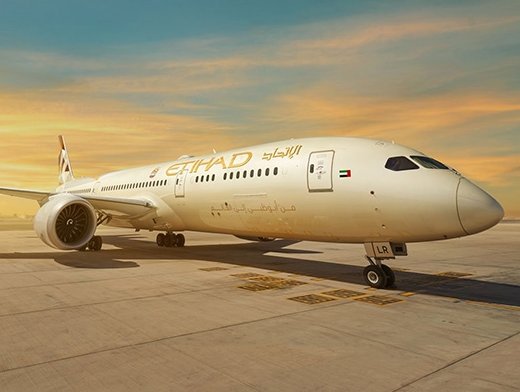
Etihad partners with Air Arabia to launch Abu Dhabi’s first low-cost airline
Oct 18, 2019: This week Etihad Aviation Group and Air Arabia announced that they have signed agreement to launch Air Arabia Abu Dhabi, Abu Dhabi’s first low-cost passenger airline. The two companies have decided to establish an independent joint venture company that will operate as a low-cost passenger airline with its hub in Abu Dhabi […]

Oct 18, 2019: This week Etihad Aviation Group and Air Arabia announced that they have signed agreement to launch Air Arabia Abu Dhabi, Abu Dhabi’s first low-cost passenger airline.
The two companies have decided to establish an independent joint venture company that will operate as a low-cost passenger airline with its hub in Abu Dhabi International Airport.
The two companies said in a joint statement that the new company, based in Abu Dhabi, will adopt the low-cost business model. Its board of directors, consisting of members nominated by Etihad and Air Arabia, will steer the company’s independent strategy and business mandate.
According to Etihad, “The new carrier will complement Etihad Airways’ services from Abu Dhabi and will cater to the growing low-cost travel market segment in the region.”
Currently, the UAE is home to four carriers, Emirates, Etihad, flydubai, and Air Arabia, two of which (flydubai and Air Arabia) are low-cost.
Tony Douglas, Group chief executive officer, Etihad Aviation Group, said: “Abu Dhabi is a thriving cultural hub with a clear economic vision built on sustainability and diversification. With the emirate’s diverse attractions and hospitality offerings, travel and tourism play a vital role in the economic growth of the capital and the UAE. By partnering with Air Arabia and launching Abu Dhabi’s first low-cost carrier, we are serving this long-term vision.”
Air Arabia’s Group CEO Adel Al Ali said: “The new carrier will further serve the growing low-cost travel segment locally and regionally.”
There has been rapid growth in the low-cost air travel model in the Middle East and North Africa since it was first introduced in 2003.
The seat capacity share of the low-cost carriers, to and from the Middle East, increased to 17 percent in 2018, compared to only 8 percent in 2009.
Further information regarding the new joint venture will be communicated in the near future, said both the companies in a joint statement.
Middle Eastern airlines posted a 2.9 percent traffic increase in August, which was better than the average of the past twelve months but still it remained far below the double-digit growth trend of recent years. Falling business confidence in parts of the region, combined with some key airlines going through a process of structural change and geopolitical tensions are all likely to be contributing factors.

